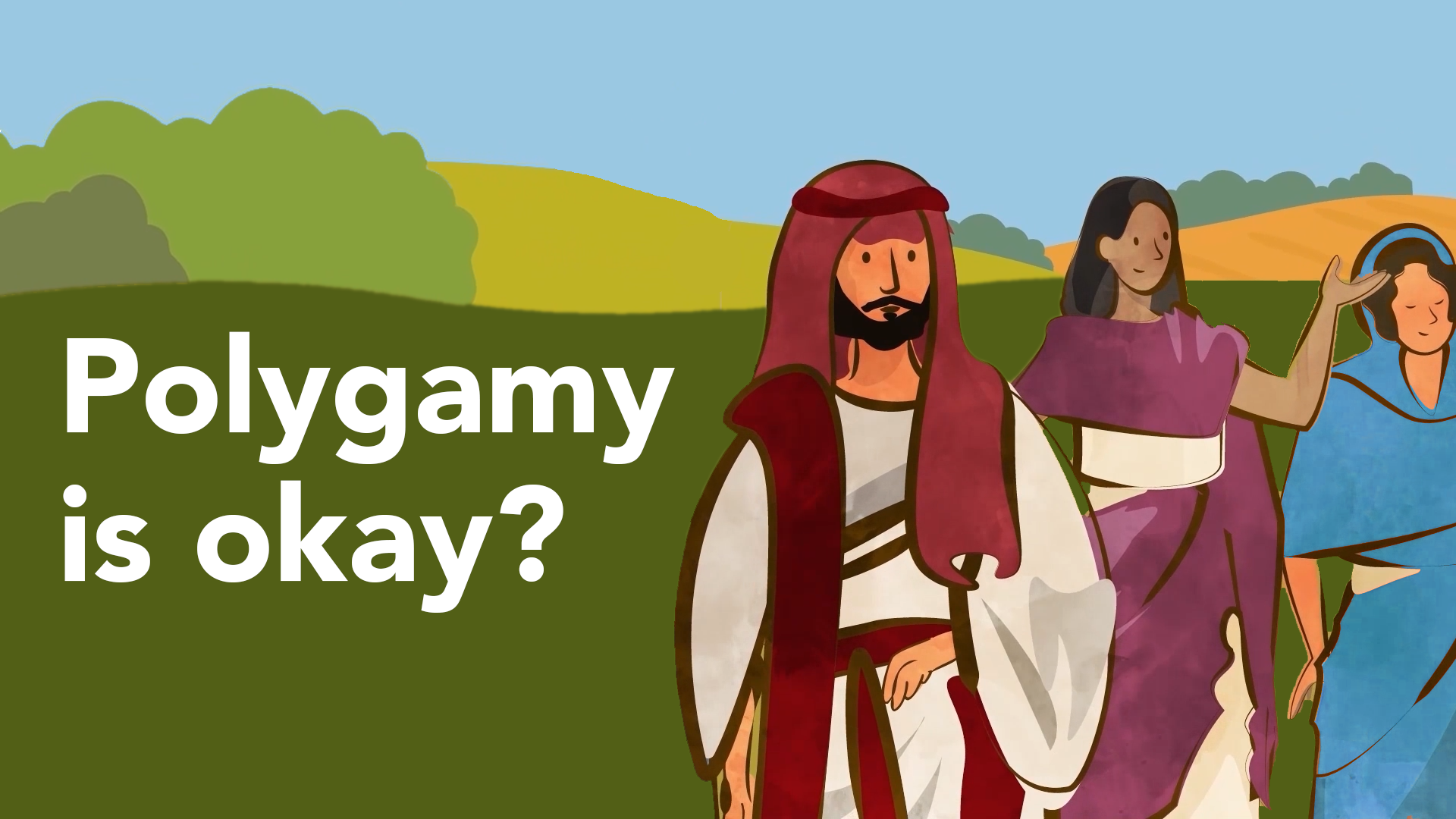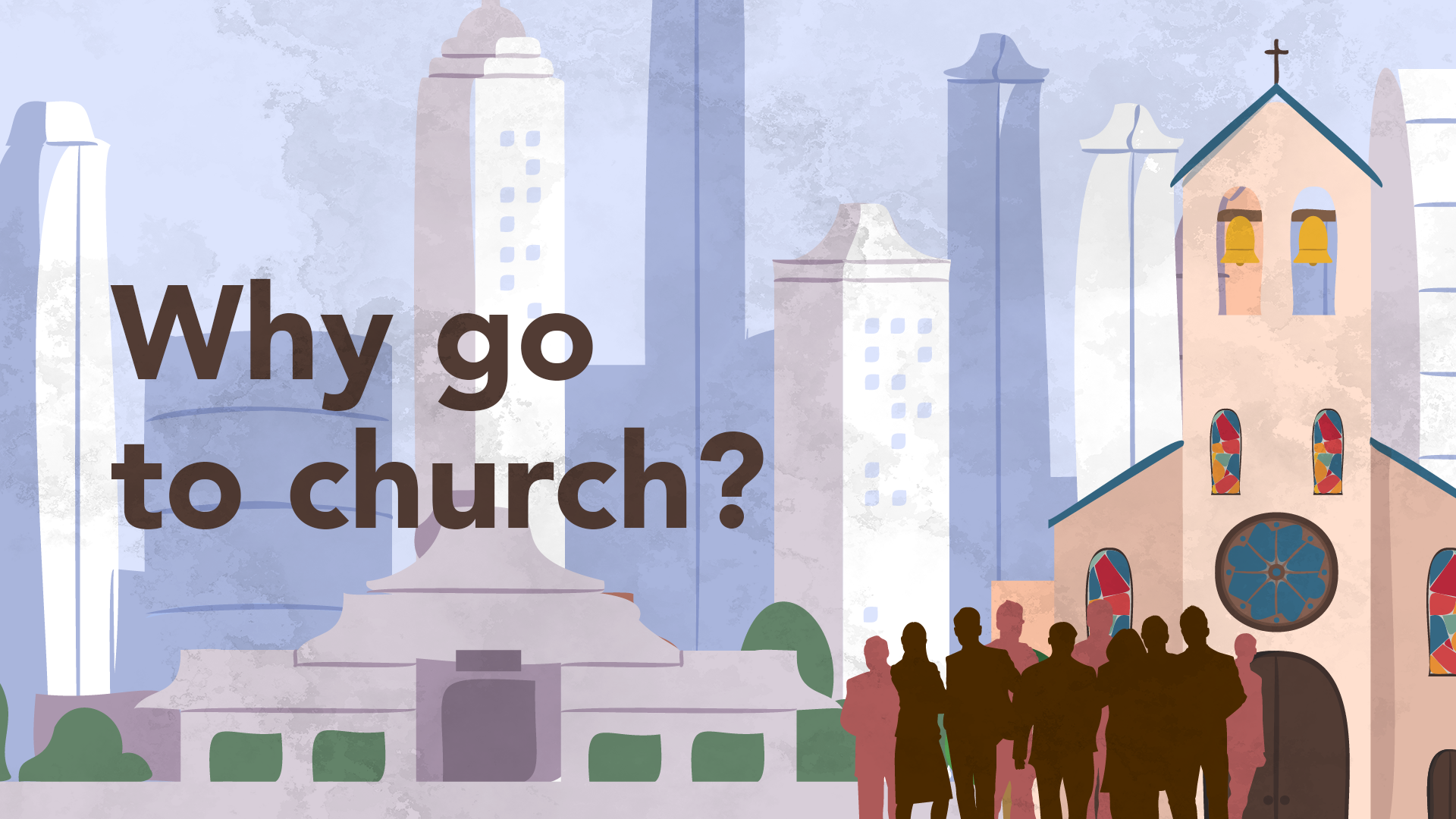You’re in a conversation and someone says, “Defending religious freedom is just about protecting privilege.”
What Would You Say?
Sometimes people think standing up for religious freedom is really about clinging to power and privilege. In discussing whether Christians who defend religious freedom are just trying to protect their own dominance in society, here are three things to consider.
What Would You Say?:
Is Religious Freedom Just About Protecting Privilege?
You’re in a conversation and someone says, “Religion has been used to justify all kinds of evil, like war and slavery. Claiming religious freedom is just about protecting privilege.”
What would you say?
Sometimes people think standing up for religious freedom is really about clinging to power and privilege. They assume that Christians who defend religious freedom just want to protect their own dominance in society. But is that really true?
No. And here are three reasons why.
Number 1: From the beginning, Christianity has taught that all people have inherent and equal dignity.
Christianity teaches that all people are made in God’s image, or the Imago Dei. That belief is the foundation of the Christian teaching about human dignity and value, and it turned the ancient world upside down. In fact, it led to the end of the barbaric gladiatorial games, it curbed the widespread practice of infanticide, and changed the way society thought about slavery.
Until the early Church, everyone in history accepted slavery as a fact of life. But the idea of the Imago Dei led Christians, most notably the Apostle Paul, to realize that all people are created in God’s image and are worthy of equal dignity.
Very early in the history of Christianity, Christians took a stance against slavery. Christian communities pooled money to buy slaves and set them free. A 5th-century letter from St. Augustine tells how a group of who freed an entire ship full of slaves! In the Middle Ages, Christian king Clovis II, influenced by his wife Bathild [Buh-tild], issued the first anti-slave laws in history. [1] [2] 13th century Christian philosopher Thomas Aquinas wrote that slavery violated the law of nature. During the Renaissance, four popes openly condemned the slave trade. In both England and America, the abolition movement was led by Christians. And Christian pastors like Martin Luther King Jr. led the Civil Rights movement. Today, many of those at the forefront of the struggle to end sex slavery and human trafficking around the world are Christians.
While certain groups in the pre-Civil War American South tried to use Bible verses to support race-based chattel slavery, their wrong interpretation of those verses was well outside the mainstream of Christian history. Because of Christianity’s teaching about the Imago Dei, Christian communities have more often worked to protect the vulnerable.
Number 2: The idea of religious freedom also comes from the belief in the Imago Dei.
Just as Christianity brought about the end of slavery, it also uniquely promotes the idea of religious freedom. Both teachings come from belief in the image of God and the inherent dignity of each person. It is impossible to separate respect for the human person from respect for religious freedom.
Christianity asserts that all people are worthy of equal dignity. The early Christians taught that people must be free to follow their conscience in matters of religion because each person bears the image of God and therefore has the capacity and privilege to make meaningful moral decisions. That’s what phrases like “free will” or “moral agency” mean. No one can force another person to believe something against their own will.
From its opening pages, the Bible teaches that every person is made in God’s image. That core understanding of human dignity means Christians must stand for freedom—including the freedom for every image bearer to live according to their deeply held beliefs.
Number 3: Religious liberty, by definition, is equalizing. It is freedom for all people, not just for one group.
Religious freedom is an application of “the Golden Rule”: “Do unto others as you would have them do to you.” That means if Christians want the freedom to follow God according to their consciences, without undue interference from the government, they must also defend the rights of all others—fellow Christians, Muslims, Jews, Hindus, and even atheists—to peaceably do the same.
When true religious freedom is prized by a society, people of every faith win. Take, for instance, the Supreme Court’s 2020 ruling that upheld the right of Catholic churches in New York state to safely gather during COVID-19.[3] That ruling also upheld the rights of two Jewish synagogues to gather. Wins like these don’t just guard against government overreach for one religious group; they ensure everyone’s freedom to peaceably live out their faith.
So, the next time someone says that standing up for religious liberty is just about protecting privilege, remember these three points:
Number 1: From the beginning, Christianity has taught that all people have inherent and equal dignity.
Number 2: The idea of religious freedom also comes from the belief in the imago Dei.
Number 3: Religious liberty, by definition, is equalizing. It is freedom for all people, not just for one group.
[1] John Sanidopoulos, “Saint Bathild, Queen of France and Nun of Chelles (+ 680),” Orthodox Christianity Then and Now, January 30, 2019, https://www.johnsanidopoulos.com/2019/01/saint-bathild-of-ascania-queen-of.html
[2] “St. Bathilde, 626-680/685,” Order of Medieval Women, accessed February 2, 2024, https://www.medievalwomen.org/st-bathilde.html
[3] Adam Liptak, “Splitting 5 to 4, Supreme Court Backs Religious Challenge to Cuomo’s Virus Shutdown Order,” New York Times, Nov. 26, 2020, https://www.nytimes.com/2020/11/26/us/supreme-court-coronavirus-religion-new-york.html
You’re in a conversation with a fellow Christian who says, “The news is so depressing. I don’t know who to trust anyway, so I’ve stopped following current events.” What would you say? There’s no doubt that following the news can be overwhelming and discouraging… especially these days. Between talking heads on television, moral lectures from celebrities, and rants on social media, it can seem impossible to dig through the noise and know the truth about anything. However, Christians should be informed and aware of what is happening in our culture, not only for our own sake (so we can make good decisions), but for others (especially our children, our friends, and our communities). So how can Christians engage the chaos in the news without getting overwhelmed, discouraged, or burnt-out? Here are three principles to keep in mind. Number 1: All truth is God’s truth. The first and most important principle for Christians when engaging with any content is this: anything true, wherever we encounter it, is God’s truth. God is the Father of Truth. He has gone to incredible lengths to reveal Truth through His world, His Word, and especially His Son, Jesus Christ. Scripture tells that God is loving and that He is in control. That means that His Truth will not change over time. Truth transcends the contexts of different cultures. So, while we can always learn more in each new historical moment, from truths that are new to us to new applications and facets of Truth, the Truth itself does not change. Satan, on the other hand, is the father of lies. Throughout the Bible, from the very first time in the Garden of Eden when Satan tempted Eve, he sets up false narratives to undermine God’s truth and question God’s character as a loving father. That’s still what Satan does today. He hasn’t changed his tactics. So whenever we engage with the news we can keep this in mind. Anything true comes ultimately from God. Anything false, does not. And, even more than false facts, we should look for false narratives that undermine what is true and cause us to question what he has revealed. This leads to our second principle. Number 2: Focus on God’s story first, and the news second. If we don’t know God’s story, we won’t be able to differentiate between true and false narratives. The most important thing for Christians to do is to learn God’s story. If we don’t know what He has revealed, we will struggle to sort through the news with any clarity. In fact, reading and studying the Scriptures—or, learning God’s story—with a community of faithful believers is essential. When we know how to live and think from God’s story, rather than from the world’s narratives, we won’t be confused or despair by what we see in the news because we have a framework for identifying what is true and knowing where the ideas and issues of our culture fit. Number 3: Read local news stories and find ways to transform them. Christians should be most fully engaged with the news from their local area—from their own neighborhood, town, city, and state. Only after this should we focus in on national news. This may seem counterintuitive, but it has several advantages. First, it is easier to sort through competing narratives when the situation is closer to your life. And second, you’re more likely to be able to do something about problems in your local area. For example, reading a national news story about rising poverty levels is depressing and overwhelming. It’s not always clear what the Christ-like, loving response to that story is. But if you read a local news story about how a homeless shelter down the street needs donations, the action step is clear. You can volunteer or donate. You can even organize a food drive through your church, or you can work with a local youth group to do a service day. You can translate the story into action—you can fit the news into a narrative of God’s love restoring all things. So the next time someone says that they’re discouraged or overwhelmed by the news, share these three principles: Number 1: All truth is God’s truth. Number 2: Focus on God’s story first, and the news second. Number 3: Read local news stories and find ways to transform them. For What Would You Say?, I’m Brooke McIntire.
For more on engaging the news, see Chapter 4, "The Information Age," in A Practical Guide to Culture: Helping the Next Generation Navigate Today's World by John Stonestreet and Brett Kunkle.



 Colson Center
Colson Center


